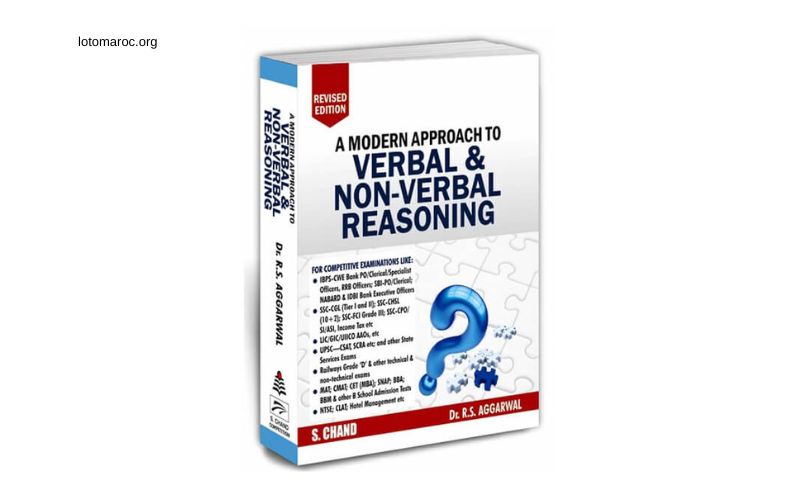In today’s fast-paced, technology-driven world, the ability to think critically and solve problems quickly has become increasingly important. Two key skills that can help you navigate this landscape are verbal reasoning and non-verbal reasoning. Whether you’re preparing for a job interview, an academic exam, or simply want to sharpen your cognitive abilities, mastering these reasoning skills can give you a significant advantage.
Introduction to Verbal and Non-verbal Reasoning
Verbal reasoning involves the ability to understand, analyze, and interpret language, while non-verbal reasoning focuses on the ability to process and interpret visual information, patterns, and relationships. Both of these skills are essential for success in a wide range of professional and academic settings, from problem-solving and decision-making to critical thinking and effective communication.
Importance of Verbal and Non-verbal Reasoning Skills
In an increasingly competitive job market, employers are seeking candidates who can think on their feet, communicate effectively, and adapt to changing situations. Strong verbal and non-verbal reasoning skills can help you stand out from the crowd, as they demonstrate your ability to:
- Quickly comprehend and interpret complex information
- Identify patterns and relationships in data
- Solve problems creatively and logically
- Communicate your ideas clearly and persuasively
- Adapt to new situations and think outside the box
The Difference Between Verbal and Non-verbal Reasoning
While both verbal and non-verbal reasoning are important, they involve distinct cognitive processes and skills. Verbal reasoning relies on your command of language, vocabulary, and the ability to understand and interpret written and spoken information. Non-verbal reasoning, on the other hand, focuses on your ability to recognize and manipulate visual patterns, shapes, and spatial relationships.
Strategies for Improving Verbal Reasoning Skills
To enhance your verbal reasoning skills, consider the following strategies:
- Expand your vocabulary: Read widely, use a dictionary, and practice using new words in your everyday conversations.
- Improve your reading comprehension: Actively engage with the material you read, ask questions, and summarize the key points.
- Practice critical thinking: Analyze arguments, identify logical fallacies, and develop your own well-reasoned opinions.
- Enhance your communication skills: Participate in discussions, give presentations, and seek feedback on your writing and speaking abilities.
Techniques for Improving Non-verbal Reasoning Skills
To strengthen your non-verbal reasoning skills, try the following techniques:
- Solve puzzles and brain teasers: Engage in activities that challenge your spatial awareness and problem-solving abilities, such as jigsaw puzzles, Rubik’s cubes, or logic games.
- Observe and analyze visual patterns: Pay attention to the shapes, colors, and relationships you encounter in your daily life, and try to identify the underlying logic or structure.
- Practice mental rotation and visualization: Imagine how objects or shapes would appear if they were rotated, flipped, or viewed from different angles.
- Engage in physical activities: Sports, dance, and other physical pursuits can help improve your spatial awareness and coordination.
Common Types of Verbal Reasoning Questions
Verbal reasoning questions can take many forms, including:
- Analogies: Identify the relationship between two words and apply that logic to a new pair of words.
- Sentence completion: Fill in the blank in a sentence with the most appropriate word or phrase.
- Reading comprehension: Answer questions based on a given passage of text.
- Logical reasoning: Analyze arguments and identify logical flaws or fallacies.
Common Types of No2n-verbal Reasoning Questions
Non-verbal reasoning questions often involve:
- Patterns and sequences: Identify the underlying logic in a series of shapes, figures, or images and complete the pattern.
- Spatial awareness: Visualize how objects or shapes would appear if they were rotated, flipped, or combined in different ways.
- Logical deduction: Use the information provided in diagrams, charts, or images to draw logical conclusions.
- Numerical reasoning: Interpret and analyze numerical data presented in visual formats, such as graphs or tables.
Recommended Study Materials for Verbal and Non-verbal Reasoning
To improve your verbal and non-verbal reasoning skills, consider the following resources:
- Books and online courses: Explore a wide range of books, e-books, and online courses that focus on developing critical thinking, problem-solving, and reasoning abilities.
- Practice tests and exercises: Engage in timed practice tests and targeted exercises to hone your skills and identify areas for improvement.
- Educational apps and games: Utilize mobile apps and brain-training games that challenge your cognitive abilities in a fun and engaging way.
- Tutoring and coaching: Consider working with a tutor or coach who can provide personalized guidance and feedback to help you reach your full potential.
How to Approach Verbal and Non-verbal Reasoning Tests
When facing verbal and non-verbal reasoning tests, keep the following tips in mind:
- Understand the test format: Familiarize yourself with the types of questions you’ll encounter and the time constraints.
- Practice, practice, practice: Engage in regular practice to build your confidence and speed.
- Manage your time effectively: Allocate your time wisely, and don’t get bogged down on any one question.
- Stay calm and focused: Maintain a clear mind and avoid getting flustered or anxious during the test.
- Review your work: Double-check your answers and ensure you haven’t made any careless mistakes.
Conclusion
By developing your verbal and non-verbal reasoning skills, you’ll unlock a world of opportunities. These essential cognitive abilities will empower you to tackle complex problems, make informed decisions, and communicate your ideas with clarity and confidence. Whether you’re aiming to excel in your academic pursuits, advance your career, or simply enhance your overall problem-solving abilities, mastering these skills can be a game-changer.
To take your verbal and non-verbal reasoning skills to the next level, consider enrolling in our comprehensive online course. Our expert-led program will provide you with the strategies, techniques, and resources you need to unlock your full potential. Click here to learn more and get started today!
















